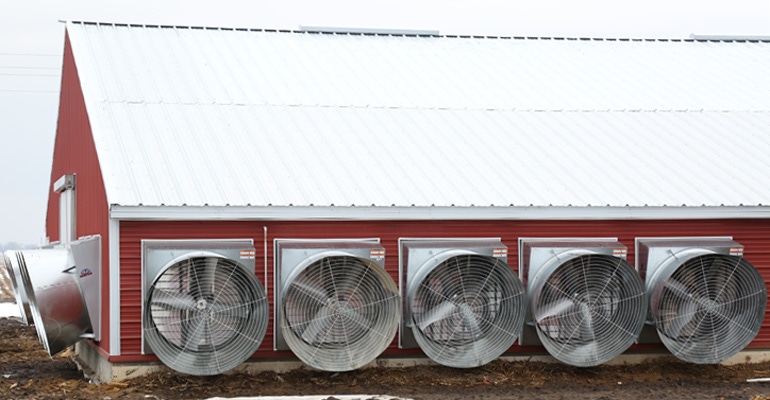Ag groups seek rehearing on air emissions case
NPPC and USPOULTRY want court to reconsider whether CERCLA and EPCRA reporting are needed for agricultural entities.

The National Pork Producers Council (NPPC) and the U.S. Poultry & Egg Assn. (USPOULTRY) are seeking a rehearing following a recent ruling issued by the U.S. Court of Appeals for the District of Columbia Circuit.
The court’s ruling rejected an exemption from reporting under the Comprehensive Environmental Response, Compensation & Liability Act (CERCLA) and the Emergency Planning & Community Right-to-Know Act (EPCRA), two programs that are meant to inform the National Response Center and local first responders of hazards that may call for emergency action.
The Environmental Protection Agency had provided an exemption from CERCLA reporting of low-level emissions of ammonia and hydrogen sulfide generated from the natural breakdown of animal manure after the agency’s evaluation demonstrated that any emergency response to such emissions reports was “unnecessary, impractical and unlikely.”
EPA had limited EPCRA reporting of such emissions to one-time reports for continuous releases from large, confined animal feeding operations. USPOULTRY and NPPC intervened in the lawsuit to defend what they called the agency’s commonsense exemption.
The request for a rehearing is also being supported by the American Farm Bureau Federation, National Cattlemen’s Beef Assn., National Council of Farmer Cooperatives, National Milk Producers Federation and the United Egg Producers.
At the end of May, 28 senators signed a letter urging EPA Administrator Scott Pruitt to challenge the D.C. Circuit’s decision and to “provide America’s farmers and ranchers with regulatory relief through agency directive and rule-making.”
CERCLA is used to recover natural resource damages caused by hazardous substances; EPCRA is for state and local emergency responders to use when dealing with hazardous chemical releases. “Congress never imagined normal odors and emissions ... of livestock, poultry and egg production would somehow be captured” under the laws, the senators wrote.
If the court does not grant the requests, its ruling will likely become final on or about June 2, 2017, requiring livestock farmers to comply with emission reporting requirements.
About the Author(s)
You May Also Like





